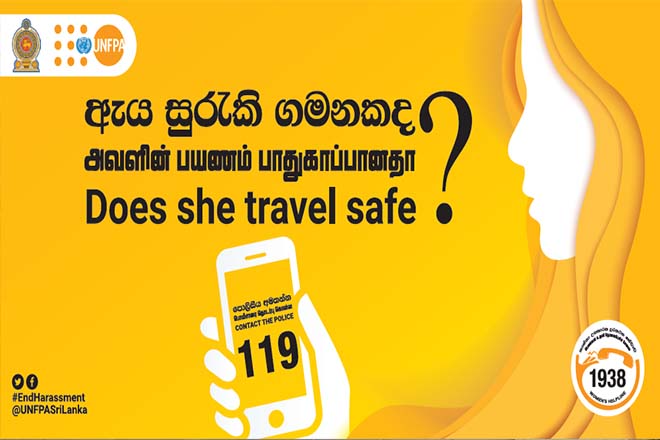buy tadora online https://beautymed.ca/wp-includes/SimplePie/Content/Type/tadora.html
"Sexual harassment against women on public transport is one form of gender-based violence," Ritsu Nacken, UNFPA representative said emphasizing the importance of addressing this social issue. "In order to address the issue of gender-based violence at large we must gather nationwide data to assist in formulation of evidence-based policies. This study is a first step towards gathering GBV data in Sri Lanka.
buy zovirax online https://beautymed.ca/wp-includes/SimplePie/Content/Type/zovirax.html
” The campaign delivered by UNFPA is part of the Ministry of Women’s and Child Affair’s national celebrations to commemorate International Women’s Day in March 2017. UNFPA commissioned the national study in 2015, with a sample of 2,500 women and girls between the ages of 15-35 years, from all administrative districts of the nine provinces in Sri Lanka. Data was collected through stakeholder consultations, key informant interviews, and questionnaire surveys. Sexual harassment violates basic human rights and contributes to a culture that discriminates women and girls, affecting them physically, psychologically and economically. It is an issue faced by women globally, and may occur in varying degrees of physical and verbal abuse, even leading to incidents of rape. Addressing the issue as a national priority, UNFPA in partnership with the Ministry of Women’s and Child Affairs, Ministry of Transport; Civil Aviation, the Prime Minister’s Office, and the Sri Lanka Police, launched a public advocacy campaign titled ‘Does she travel safe?’ A presentation on the survey findings was also made by Sharika Cooray, UNFPA Programme Analyst. The presentation highlighted that three individuals can trigger positive change: The victim – by speaking up and taking action; The bystander – by intervening and extending support; and The perpetrator – by not inflicting any such harassment. "The desired state will require long-term advocacy and strategic behavior change communication programmes on a large scale," she said.

